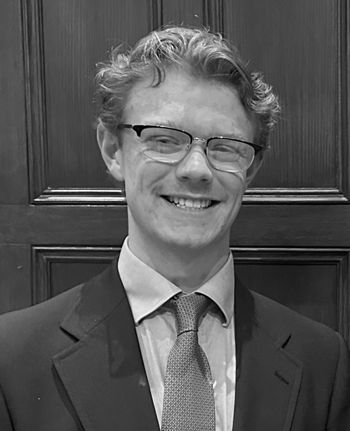Civil rights complaint accuses UW-Madison of anti-white discrimination
The Equal Protection Project claims that the BIPOC Fellows program 'makes clear that students who do not meet the prerequisite racial categories ... are automatically ineligible.'
EPP's William Jacobson says UW 'needs to come up with a remedial plan to compensate students shut out of the BIPOC Fellows program on the basis of race and ethnicity.'
A nonprofit committed to combating racism has filed a complaint against Wisconsin’s flagship university for alleged racial discrimination against white students.
As reported by The Badger Herald, the Equal Protection Project has filed a complaint against the University of Wisconsin–Madison’s Community-Engaged BIPOC (Black, Indigenous, and People of Color) Fellows program, claiming racial discrimination in processes of determining scholarships.
The program, whose application requirements for scholarships include that a student “[b]e a member of a historically underrepresented racial or ethnic group or community,” is being cited as discriminatory and unlawful by EPP.
The complaint, filed by EPP on Jan. 22 with the U.S. Education Department’s Office for Civil Rights, claims that, “The BIPOC Fellows program at UW-Madison makes clear that students who do not meet the prerequisite racial categories – for example, students who identify as white – are automatically ineligible.”
EPP is also accusing UW of violating the 1964 Civil Rights Act and the 14th Amendment, stating, “The discrimination is apparent: if applicants are African American/Black, American Indian/Alaska Native, Asian, Hispanic/Latino(a), or Native Hawaiian/Pacific Islander, they are automatically eligible for the program. Applicants who do not fall into one of those racial categories are automatically excluded from consideration.”
EPP Founder and Cornell Law Professor William Jacobson told The Badger Herald, “Wisconsin and other universities simply need to find better ways of achieving their goals, and we think society and schools will be better off when you don’t have people walking around feeling like they have been the victim of discrimination.”
According to Madison 365, Jacobson has also stated that, “UW-Madison needs to come up with a remedial plan to compensate students shut out of the BIPOC Fellows program on the basis of race and ethnicity. Real harm has been done to students.”
UW is one of many universities to affirm the importance of diversity ever since the Supreme Court declared affirmative action in college admissions to be unconstitutional in June 2023.
“The ruling will require some modifications to aspects of our current admissions practices; we will, of course, adapt our practices to comply with the law,” Chancellor Jennifer Mnookin said after the decision last June. “At the same time, I want to reiterate that our commitment to the value of diversity within our community, including racial diversity, remains a bedrock value of the institution.”
As previously reported by Campus Reform, the state of Wisconsin has witnessed battles over Diversity, Equity, and Inclusion (DEI) in recent times. In December, UW’s Board of Regents voted on a compromise deal with Republican state legislatures to accept $800 million in funding in exchange for reforms to DEI jobs that will instead be reclassified in order to help all students.
Campus Reform has contacted the Equal Protection Project and the University of Wisconsin–Madison for comment for comment. This article will be updated accordingly.

